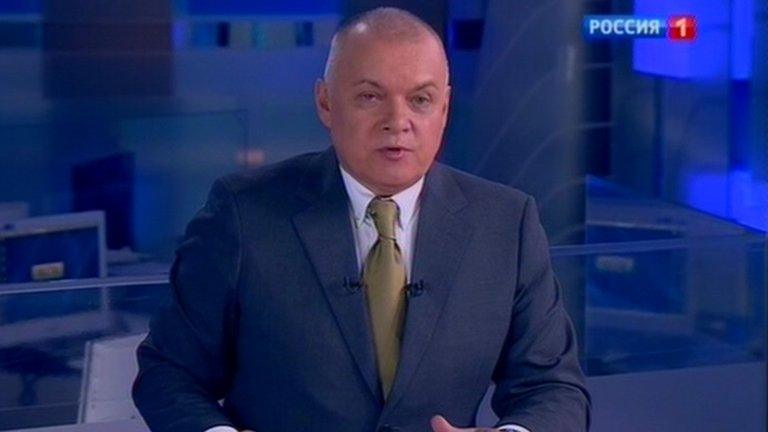Heatmap shows Russia's friends in Europe after MEPs' vote
- Published
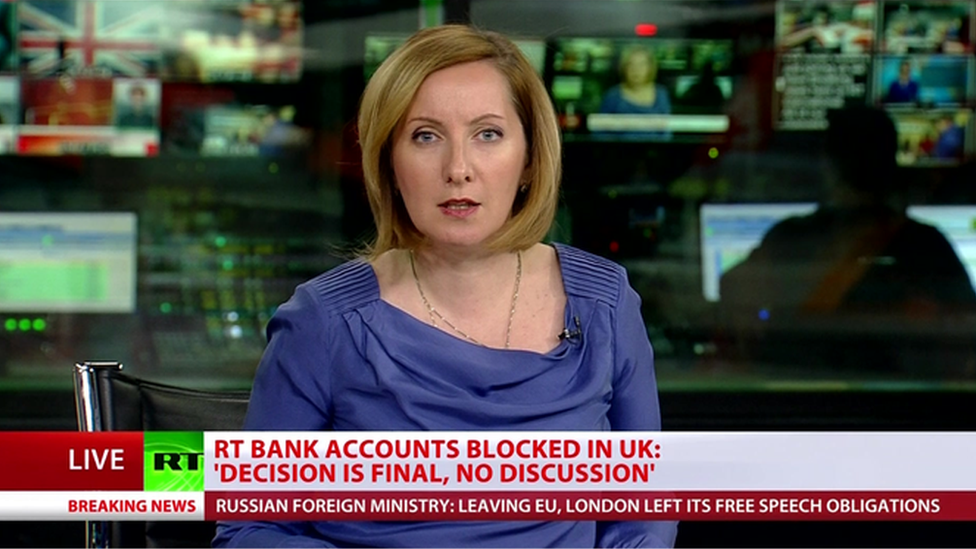
Russian state broadcaster RT is backed by the Kremlin and has global reach
Most MEPs from France, Italy and Greece rejected a tough European Parliament resolution that condemned Russian "anti-EU propaganda", analysis shows.
The resolution, passed on 23 November, called for stronger EU action against Russian and Islamist media campaigns. It said hostile messages, especially on social media, sought to split the EU.
Many MEPs defied their own parties and the vote showed a fragmentation of EU politics, Votewatch Europe said, external.
The think-tank studies EU institutions.
Russian anti-EU and anti-Nato rhetoric has intensified since the 2013-2014 political upheaval in Ukraine and Russia's annexation of Crimea.
By far the strongest support for the EU resolution, external was in the ex-communist countries of Eastern Europe, though support among Bulgarian MEPs was markedly weaker.
The overall vote was 304 in favour, 179 against and 208 abstentions. The rapporteur, who drafted the resolution, was Polish conservative Anna Fotyga.
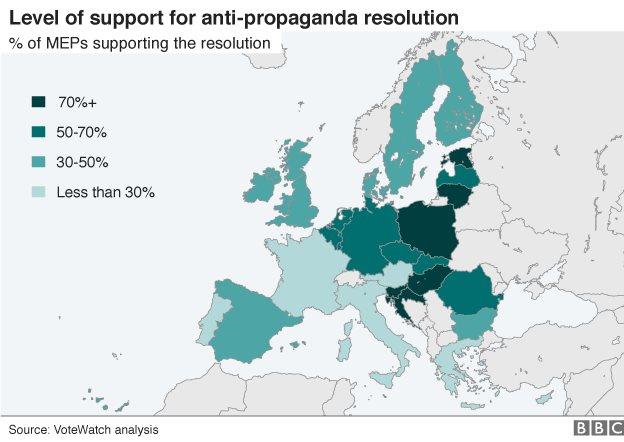
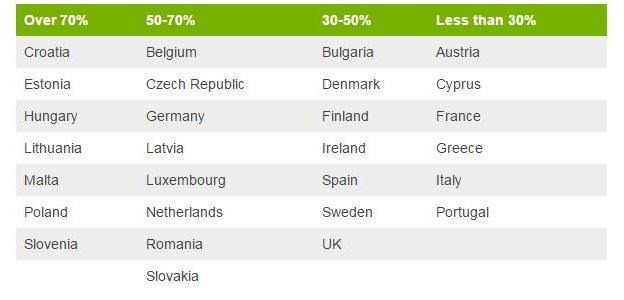
Source: VoteWatch
Support among British MEPs was lukewarm. Most UK Independence Party MEPs - the biggest British group in the parliament - opposed the resolution, as did other Eurosceptic or nationalist parties in the EU.
All 18 Greek MEPs present opposed the resolution. Among French MEPs, only three out of 68 present backed the resolution, and only eight out of 69 Italian MEPs backed it.
MEPs and other EU politicians have repeatedly warned that Russia is using information, especially on social media, as a weapon to weaken liberal democracy and spread its influence in Europe.
Putin criticises MEPs
Russian President Vladimir Putin condemned the MEPs' vote, saying it illustrated a "degradation" of democracy in the West.
Instead of resorting to a policy of restrictions, he said, MEPs ought to encourage "open discussion, in which bright and solid arguments to support one's viewpoint should be presented".
The Ukraine crisis and Western sanctions imposed on Russia triggered the worst freeze in East-West relations since the Cold War.
Doru Frantescu, policy director at Votewatch Europe, said "many MEPs voted against their party's wishes - there were many more defections than usual".
The EU has a special team called East StratCom to counter what the EU calls Russian myths and distortions. The team produces a weekly "Disinformation Review", external and a Twitter feed called EU Mythbusters, external.
"Last year there was more support for equipping East StratCom. Now we see substantial changes, especially among the French and Italians," Mr Frantescu told the BBC.
He highlighted some factors that may have softened MEPs' views on Russia:
Italian Prime Minister Matteo Renzi - close to EU foreign affairs chief Federica Mogherini - has reached out to Russia, amid domestic pressure to get the EU sanctions eased or lifted
French conservative Francois Fillon - a strong candidate in next year's presidential election - wants the sanctions lifted
US President-elect Donald Trump favours a diplomatic thaw with Russia and admires President Putin
This year the EU's focus has been more on the Syria conflict than on Ukraine
Russia is a major player in Syria and any peace deal would have to address Russian concerns.
- Published19 November 2016
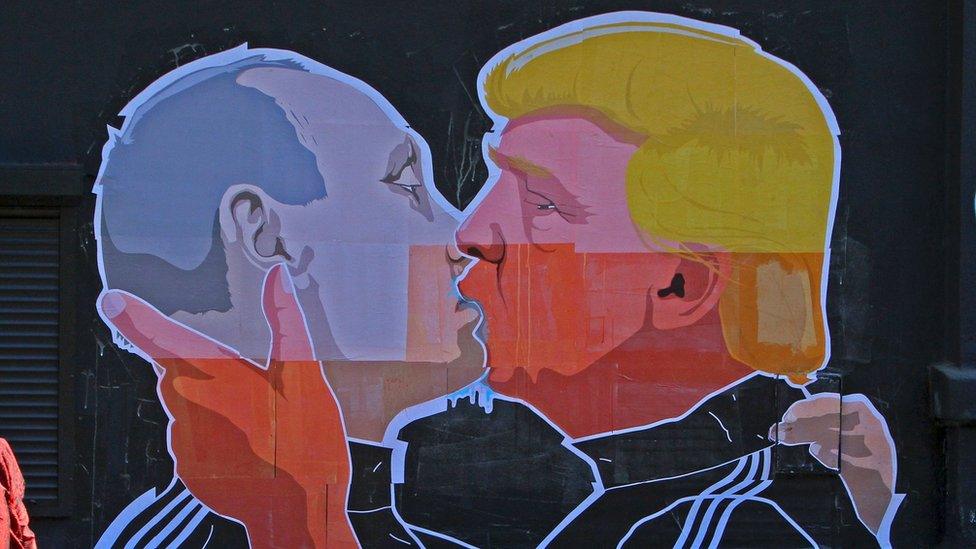
- Published4 November 2016
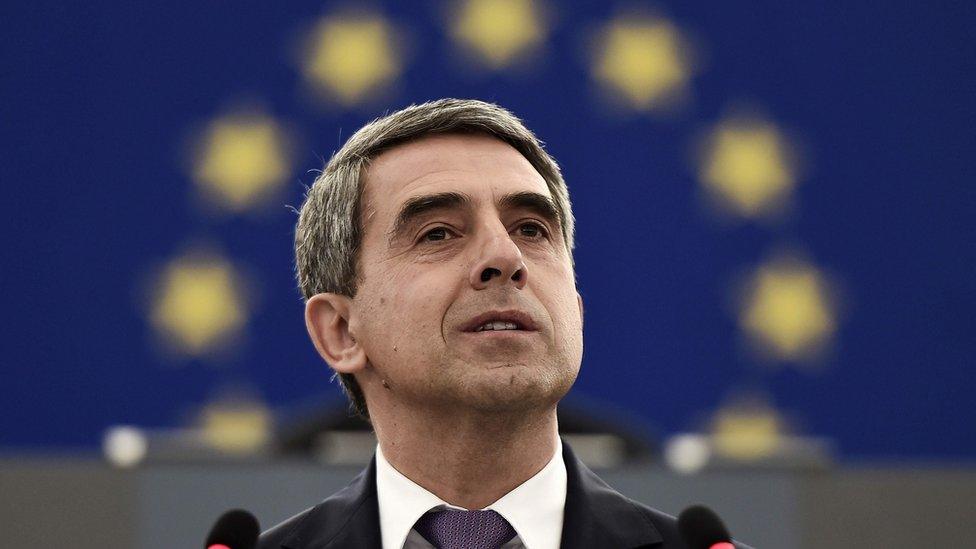
- Published17 October 2016
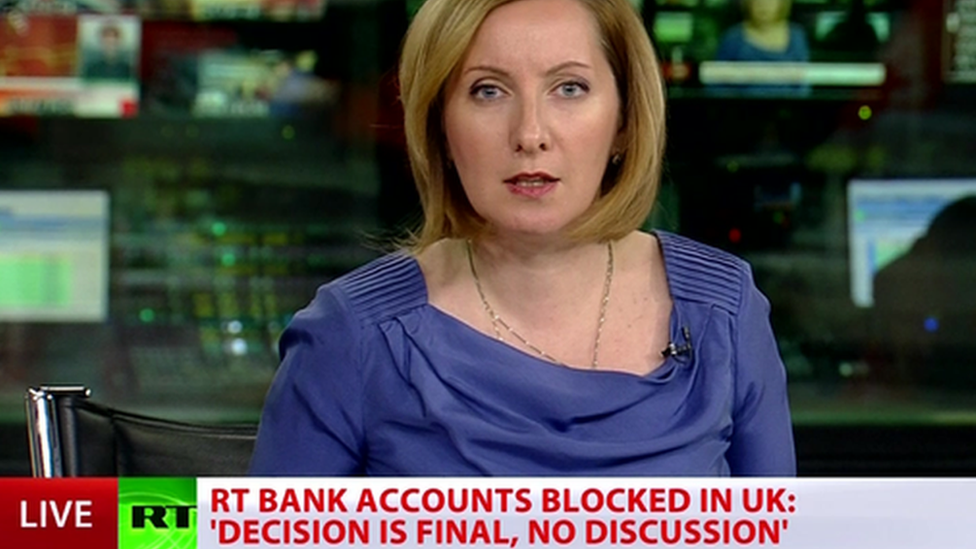
- Published10 June 2015
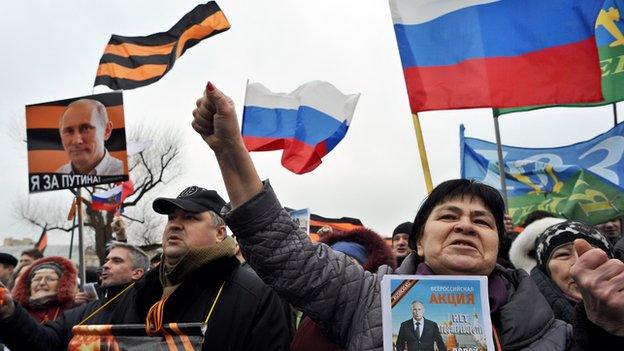
- Published10 October 2016
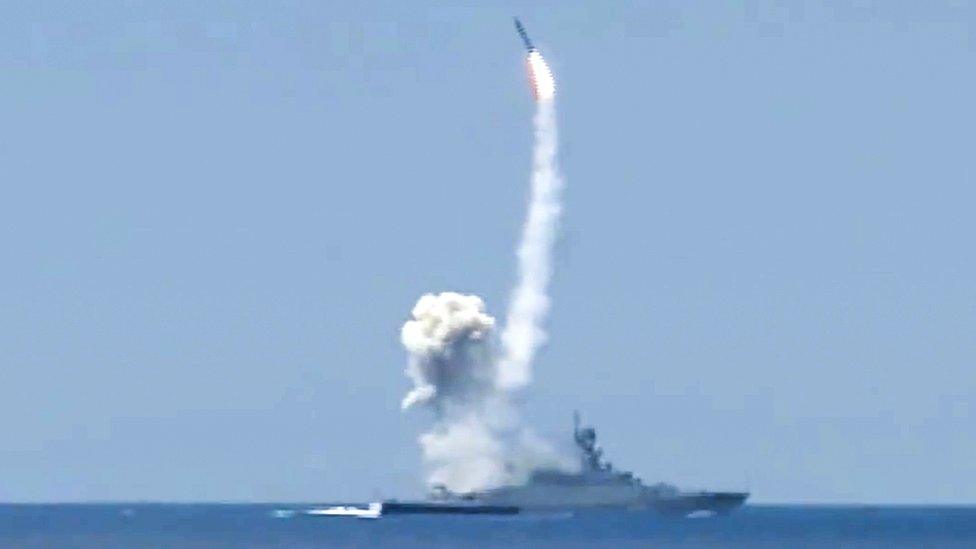
- Published6 June 2014
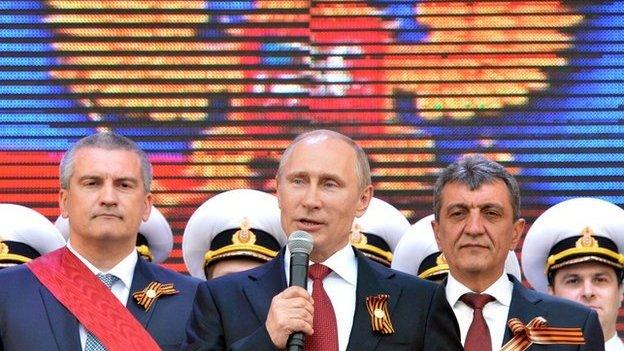
- Published2 April 2014
